Unexpected find
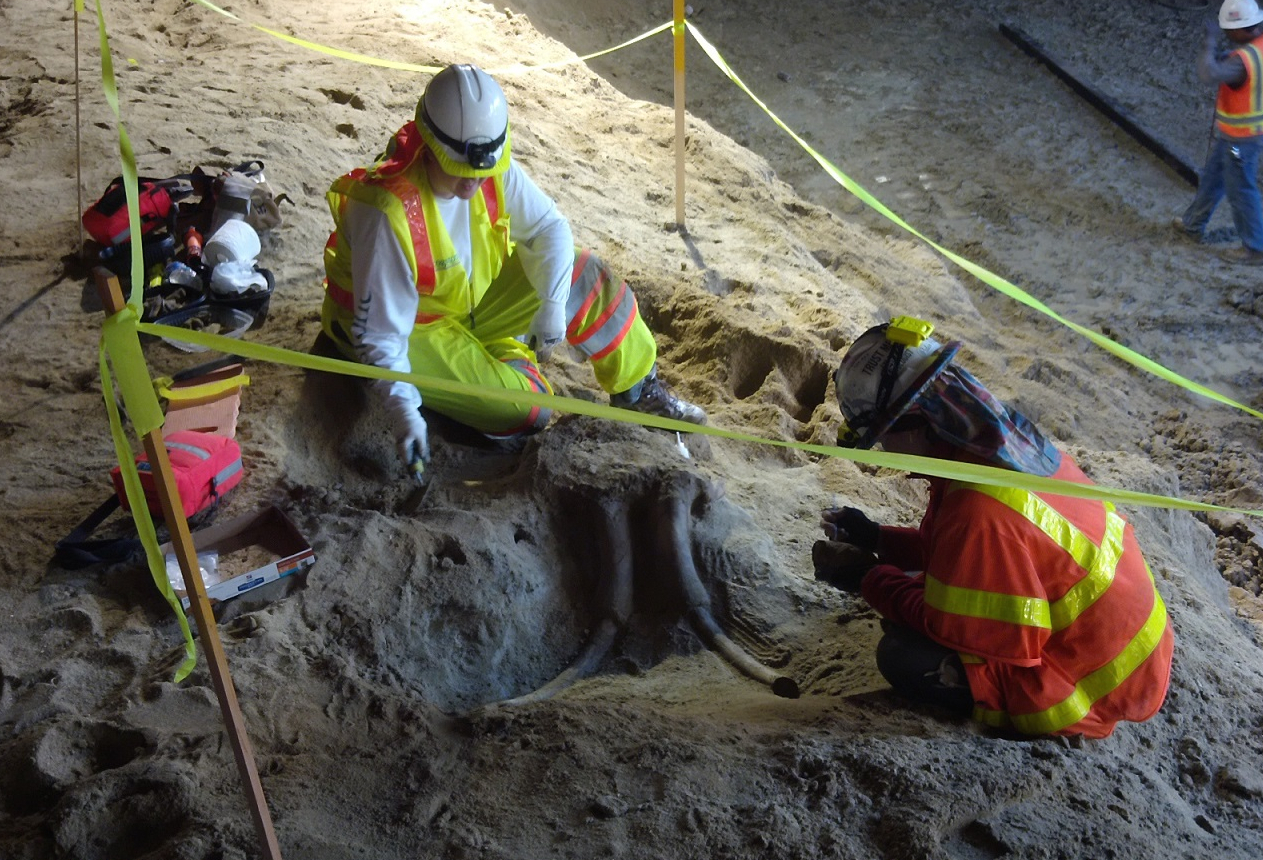
Construction for a new subway expansion in Los Angeles has yielded several treasures for paleontologists. In April 2017, workers came across the bones of an ancient camel and a Probiscidean, such as a mammoth or a mastodon, just months after workers unearthed the skull of a large Probiscidean in November 2016. [Read full story about the ice-age camel and Probiscidean bones uncovered in Los Angeles]
[Read full story about the Probiscidean skull]
Probiscidean bone
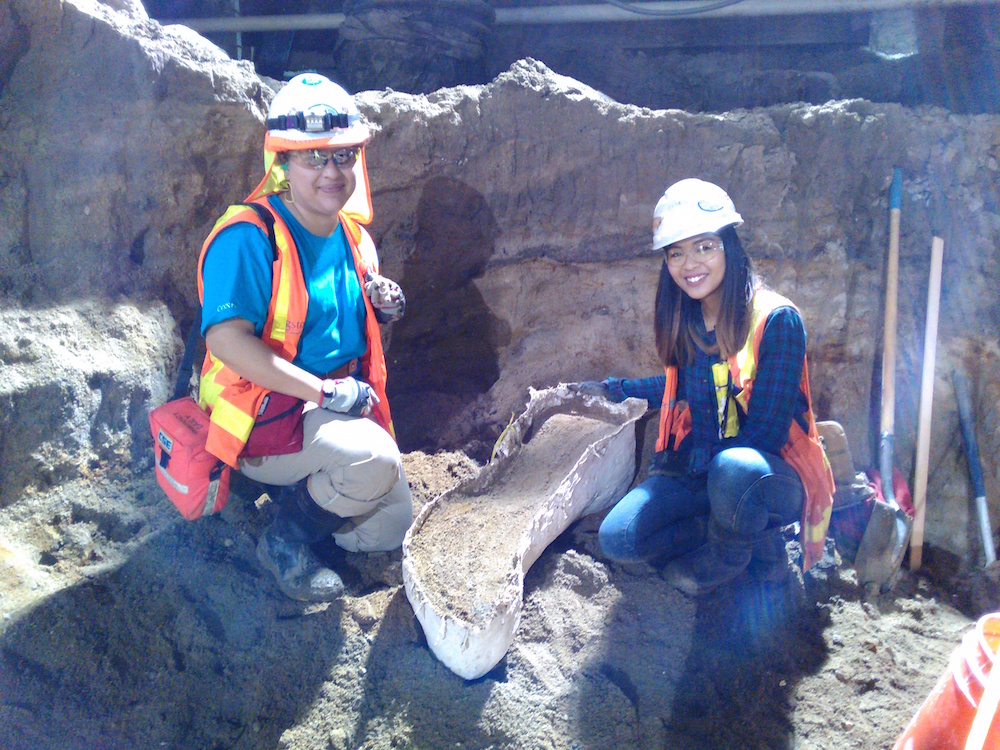
Jasmyn Nolasco (left) and Janis Basuga (right) put the leg bone of either a mammoth or mastodon (it's unclear which) into a protective plaster cast in April 2017.
Yesterday's camel
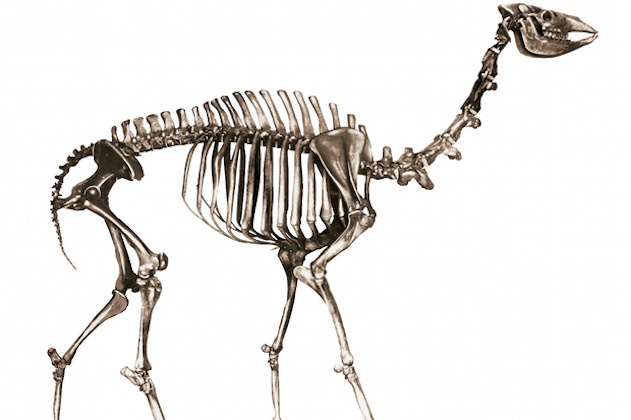
A drawing of Camelops, Latin for "yesterday's camel."
Ancient camel
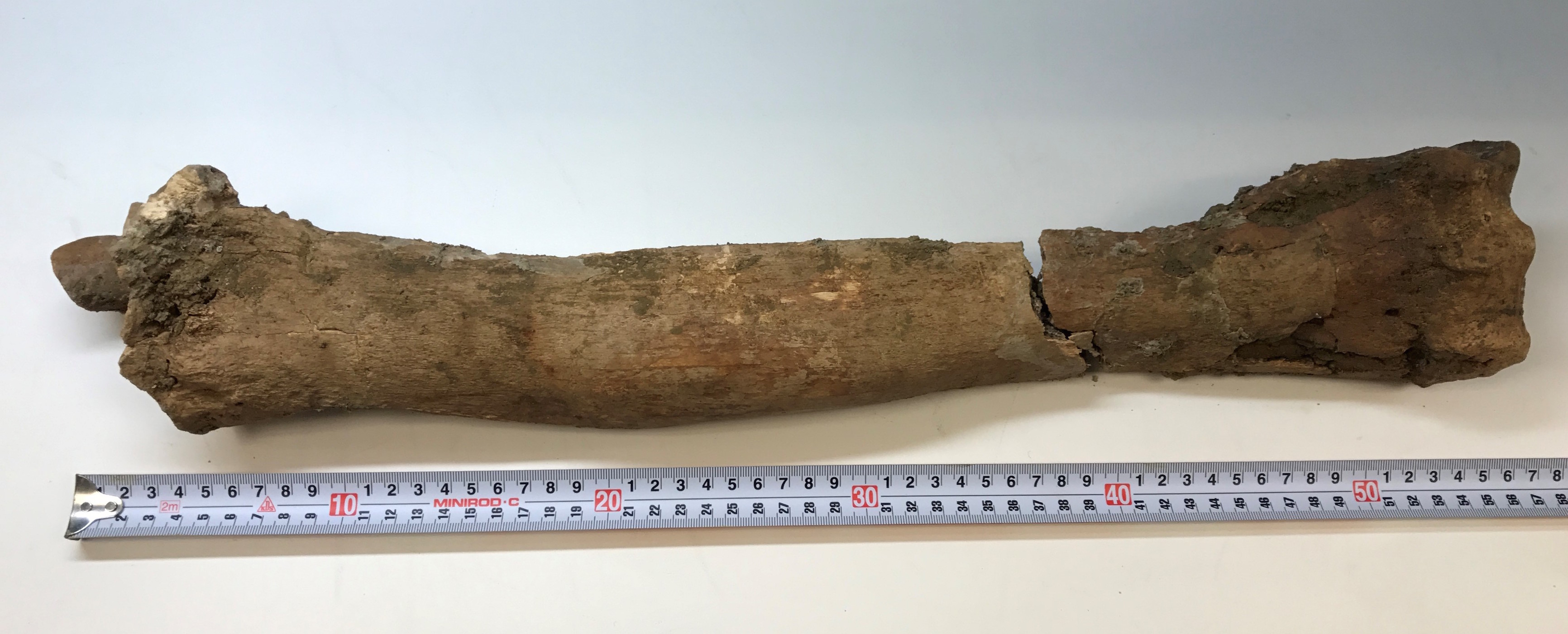
The 20-inch-long (50 centimeters) radioulna bone from the extinct camel species Camelops hesternus discovered in April 2017.
Up close
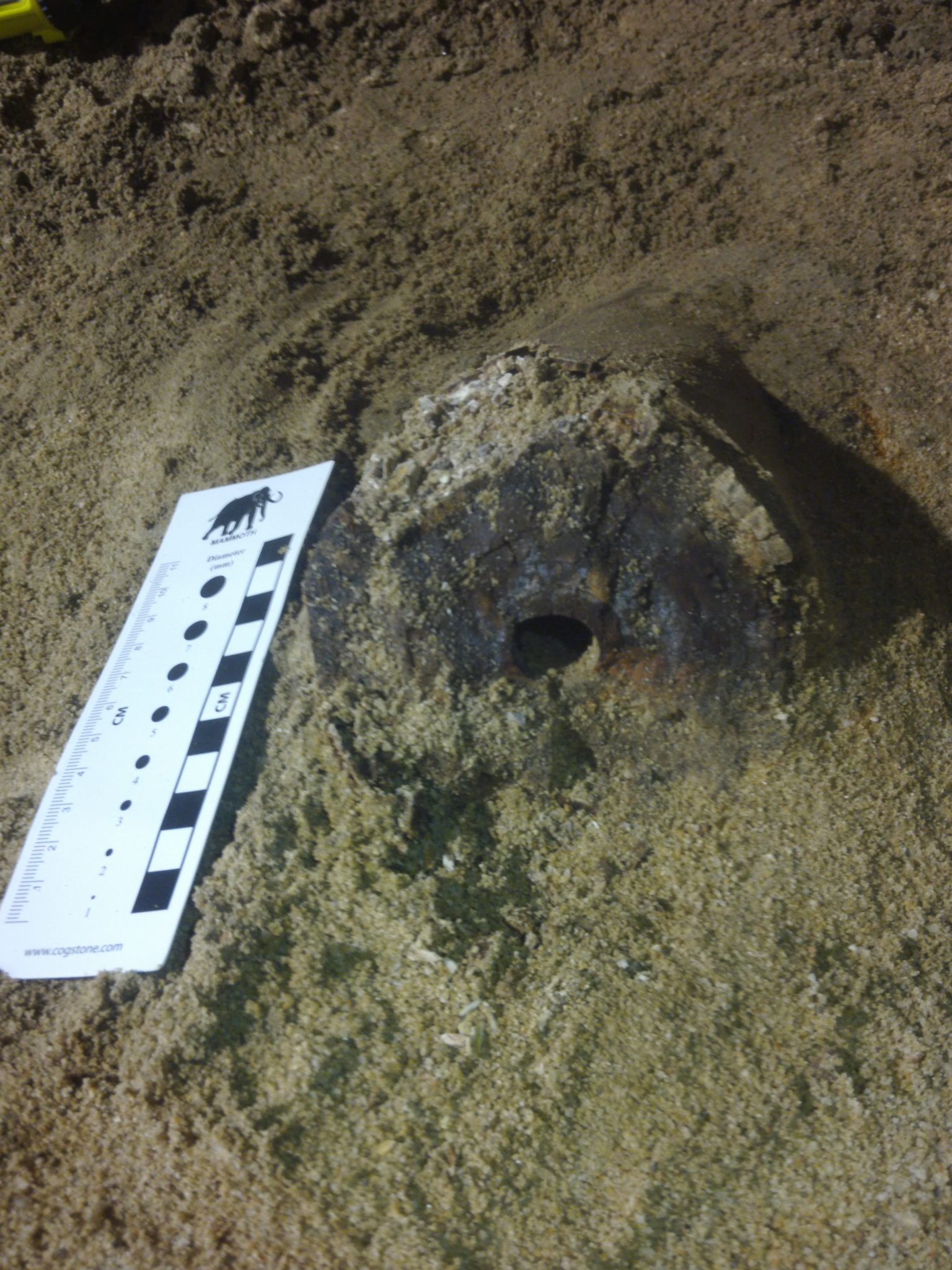
A close-up of a mammoth or mastodon tusk that was found underground as workers were digging a new line for the Los Angeles Metro subway system in November 2016.
Giant tusk
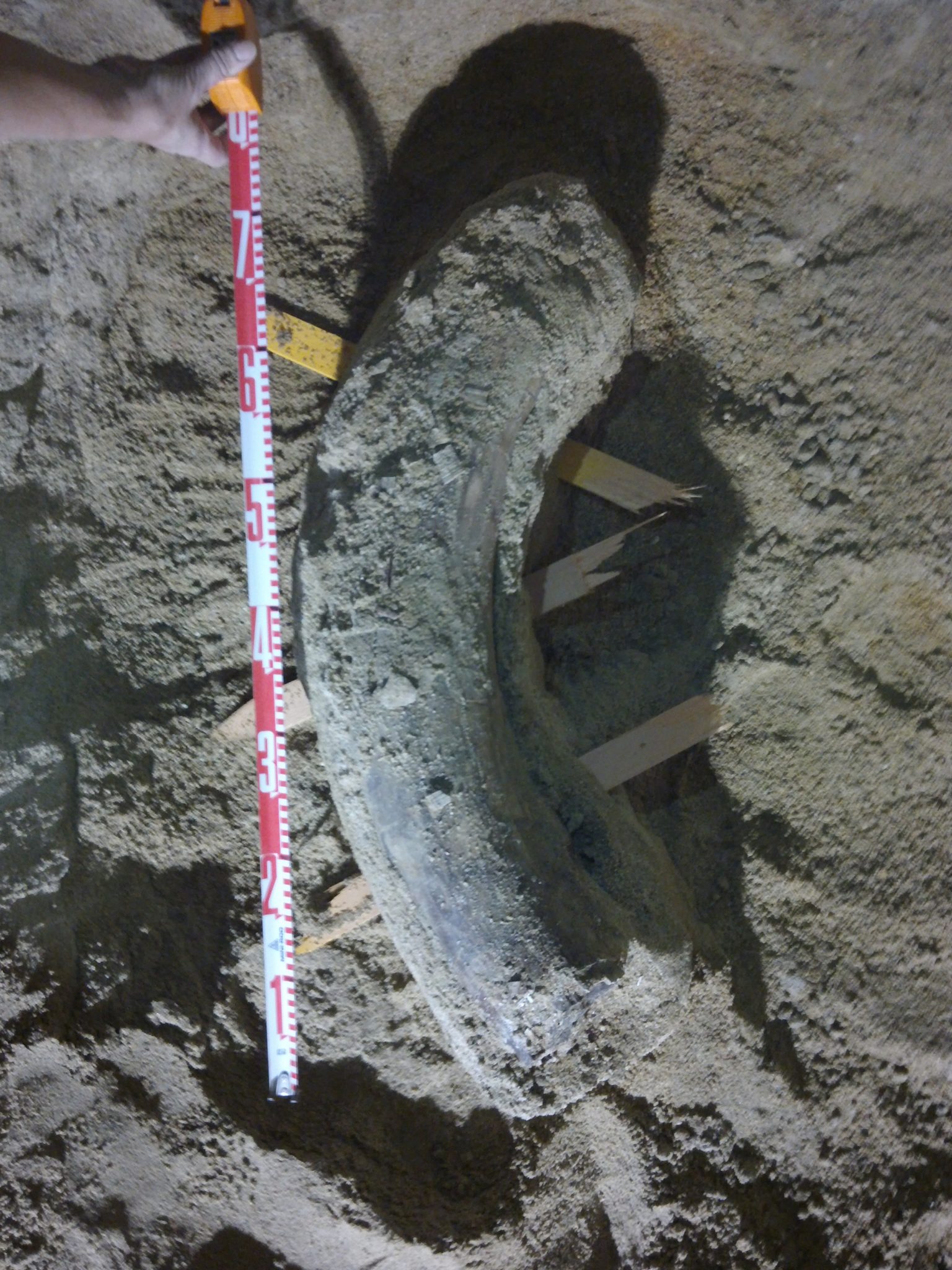
Here, another view of the giant tusk that was found while digging a new line for the Los Angeles Metro system in November 2016.
Excavation
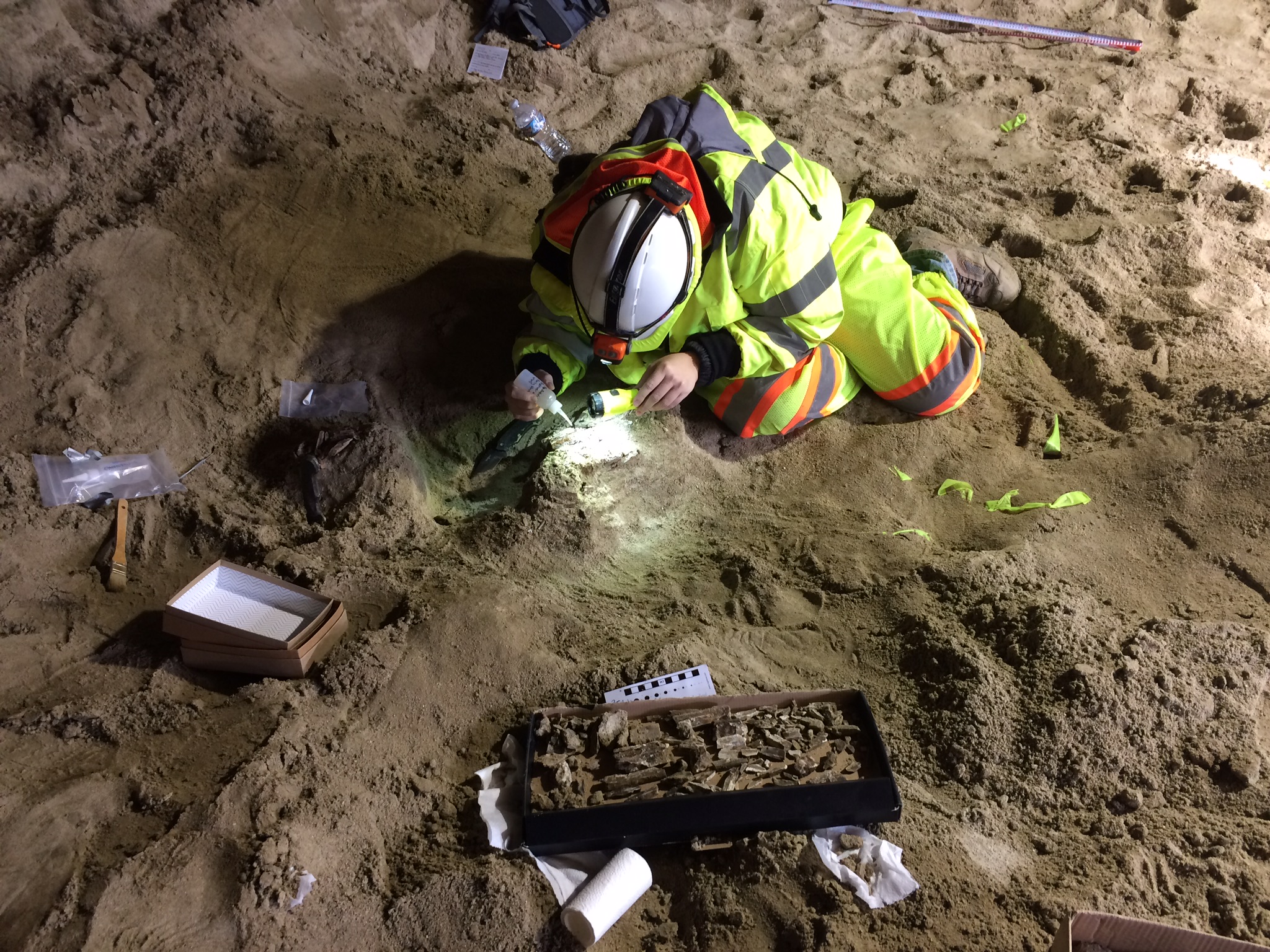
A paleontologist working on site carefully excavates the fossils from Ice Age beasts that were recently found underneath Los Angeles as workers were digging a new subway tunnel in November 2016.
Sign up for the Live Science daily newsletter now
Get the world’s most fascinating discoveries delivered straight to your inbox.
Mastodon skull
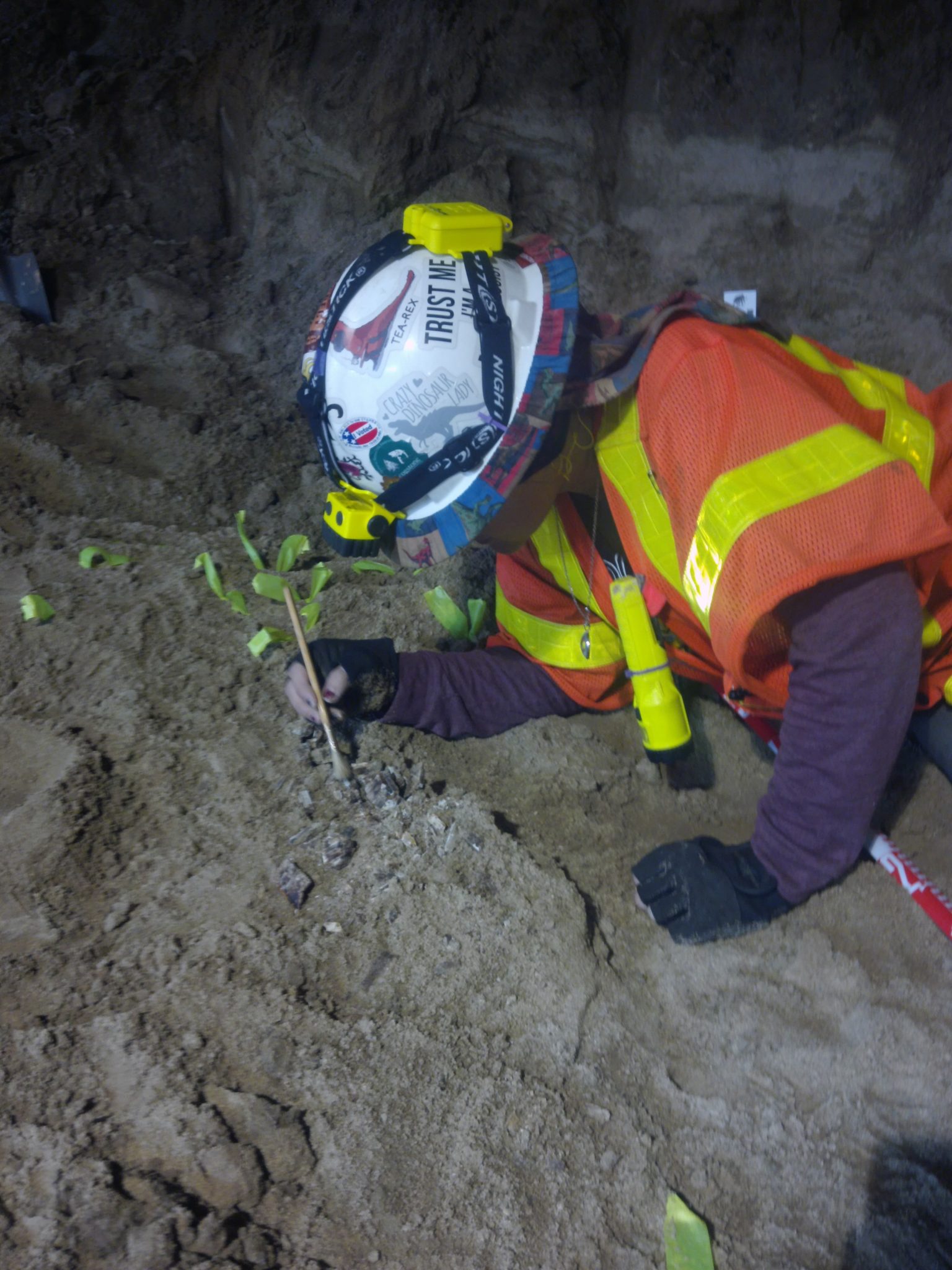
The paleontologists carefully dusted off the mammoth or mastodon skull in order to safely take it from the ground. Workers recently discovered the bones while digging a new subway tunnel for the Los Angeles Metro in November 2016.
Plastering bones
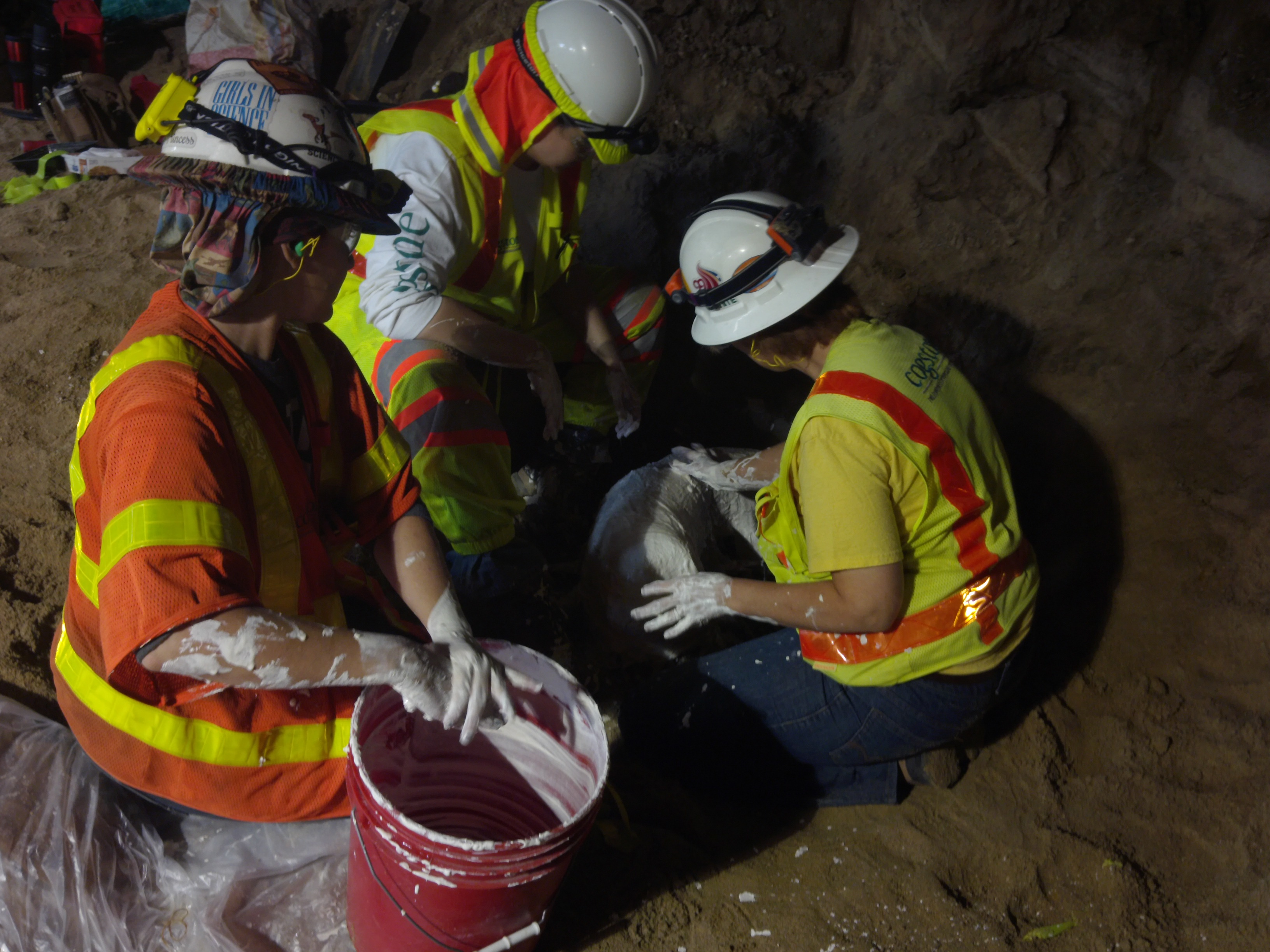
Once the bones were excavated, paleontologists quickly plastered the bones to protect them. They will eventually be housed at the Los Angeles County Museum for Natural History.

Tia is the managing editor and was previously a senior writer for Live Science. Her work has appeared in Scientific American, Wired.com and other outlets. She holds a master's degree in bioengineering from the University of Washington, a graduate certificate in science writing from UC Santa Cruz and a bachelor's degree in mechanical engineering from the University of Texas at Austin. Tia was part of a team at the Milwaukee Journal Sentinel that published the Empty Cradles series on preterm births, which won multiple awards, including the 2012 Casey Medal for Meritorious Journalism.










